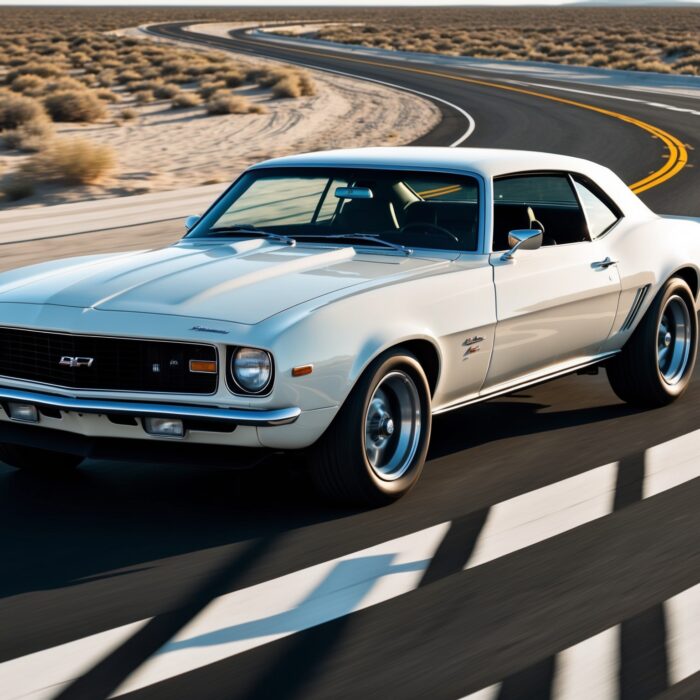Toyota, Chery Among Brands Unable to Meet Fuel Economy Claims in Real-World Testing
Fuel economy is one of the most significant factors consumers consider when purchasing a new vehicle. While manufacturers often boast impressive numbers in their advertisements, real-world testing can tell a different story. In recent studies, brands like Toyota and Chery have come under scrutiny for not meeting their own fuel efficiency claims. Join us at Torque Feed as we dive into this pressing issue, exploring the discrepancies between advertised and actual fuel economy figures, and what it means for car enthusiasts and everyday drivers alike.
The Importance of Fuel Economy
Fuel economy isn’t just a buzzword; it has serious implications for consumers and the environment. With rising fuel prices and increasing concerns about climate change, understanding how a vehicle performs in real-world conditions is crucial.
Why Fuel Economy Matters
- Financial Savings: Higher fuel efficiency means fewer trips to the gas station, saving drivers money in the long run.
- Environmental Impact: Cars that consume less fuel emit fewer greenhouse gases, contributing to a healthier planet.
- Resale Value: Vehicles known for excellent fuel economy tend to hold their value better, making them more appealing on the used car market.
How Fuel Economy is Tested
Automakers usually calculate fuel economy using standardized testing methods, such as the EPA’s testing procedures in the U.S. However, these tests often occur under controlled conditions, which may not accurately reflect everyday driving scenarios.
Standardized Testing vs. Real-World Driving
Standardized tests typically involve driving on predetermined routes, in specific weather conditions, and with a vehicle that’s been calibrated for optimal performance. In contrast, real-world driving encompasses a wide variety of factors, including:
- Terrain: Hills and inclines can significantly impact fuel efficiency.
- Driving Style: Aggressive acceleration and sudden braking can lower fuel economy.
- Traffic Conditions: Stop-and-go traffic can be a fuel economy killer.
- Load and Weight: Carrying heavy loads or having multiple passengers can affect efficiency.
The Findings: Brands Under Scrutiny
Recent studies have revealed that several brands, including Toyota and Chery, have reported discrepancies between their advertised fuel economy figures and the results obtained through real-world testing.
Toyota: A Closer Look
Toyota has long been regarded as a leader in fuel efficiency, particularly with its hybrid models like the Prius. However, recent tests have shown that some of their vehicles are falling short of expectations:
- Toyota RAV4: Marketed with impressive fuel economy figures, real-world tests showed a notable drop in mileage.
- Toyota Camry: While a popular choice, some owners have reported significantly lower fuel economy than advertised, particularly in urban driving conditions.
Chery: Challenges in the Market
Chery, a Chinese automotive manufacturer, has been making waves with its affordable vehicles. However, it seems that some of their models are also failing to meet fuel economy standards:
- Chery Tiggo: The Tiggo has garnered attention for its affordability, but real-world testing has indicated that consumers may not get the fuel efficiency they expect.
- Chery Arrizo: This compact sedan has been marketed as a fuel-efficient option, yet tests show discrepancies that could deter potential buyers.

The Implications of Fuel Economy Discrepancies
The gap between advertised and actual fuel economy can have several implications for consumers:
Also Read: ‘I don’t have any reason to be mad at you,’ says Zilisch of Love championship
Consumer Trust
When consumers find that their vehicles do not perform as promised, it can lead to a significant loss of trust in the brand. This could impact future sales and brand loyalty.
Regulatory Scrutiny
Brands that consistently misrepresent their fuel economy figures may face increased scrutiny from regulatory bodies. This can lead to fines, recalls, or even litigation.
Market Competition
As consumers become more discerning, brands that prioritize transparency and accuracy in their fuel economy claims may gain a competitive edge. This trend could push automakers to improve their testing methods and vehicle performance.
Also Read: Ford says Chinese auto brands could put their American rivals out of business
What Can Consumers Do?
As a car enthusiast or everyday driver, it’s essential to be proactive when it comes to understanding vehicle performance. Here are some tips on how to navigate the fuel economy landscape:
- Research: Before purchasing a vehicle, look for third-party testing results and consumer reviews to get a clearer picture of real-world fuel economy.
- Consider Driving Conditions: Think about your typical driving habits and environment. If you often drive in heavy traffic or hilly areas, fuel economy may be affected.
- Stay Informed: Follow automotive news and blogs like Torque Feed to keep up with the latest studies and findings regarding fuel economy and vehicle performance.
The Future of Fuel Economy Claims
As the automotive landscape evolves, manufacturers will need to adapt. With the rise of electric vehicles (EVs) and advanced hybrids, the way we measure and report fuel economy may change as well. The focus might shift from traditional fuel efficiency to overall energy consumption and emissions.
Innovations on the Horizon
Technology is rapidly advancing, bringing new solutions that could help manufacturers provide more accurate fuel economy claims:
- Real-Time Monitoring: Vehicles equipped with advanced telematics could provide real-time data on fuel consumption, helping manufacturers to refine their claims.
- Improved Testing Procedures: The standardization of real-world testing methods could lead to more accurate and realistic fuel economy figures.
- Consumer Education: Educating consumers about how to achieve optimal fuel efficiency can help bridge the gap between advertised and real-world performance.
In the End, It’s All About Trust
Fuel economy is a crucial aspect of car ownership that impacts our wallets and the environment. Brands like Toyota and Chery have some work to do in restoring consumer trust after discrepancies in their fuel economy claims. By being informed and demanding transparency, consumers can ensure they make choices that align with their values and needs.
As we look to the future, it’s clear that both manufacturers and consumers have roles to play in improving fuel efficiency and accountability in the automotive industry. Here at Torque Feed, we’ll continue to monitor these developments and provide you with the insights you need to make informed decisions about your next vehicle purchase.










